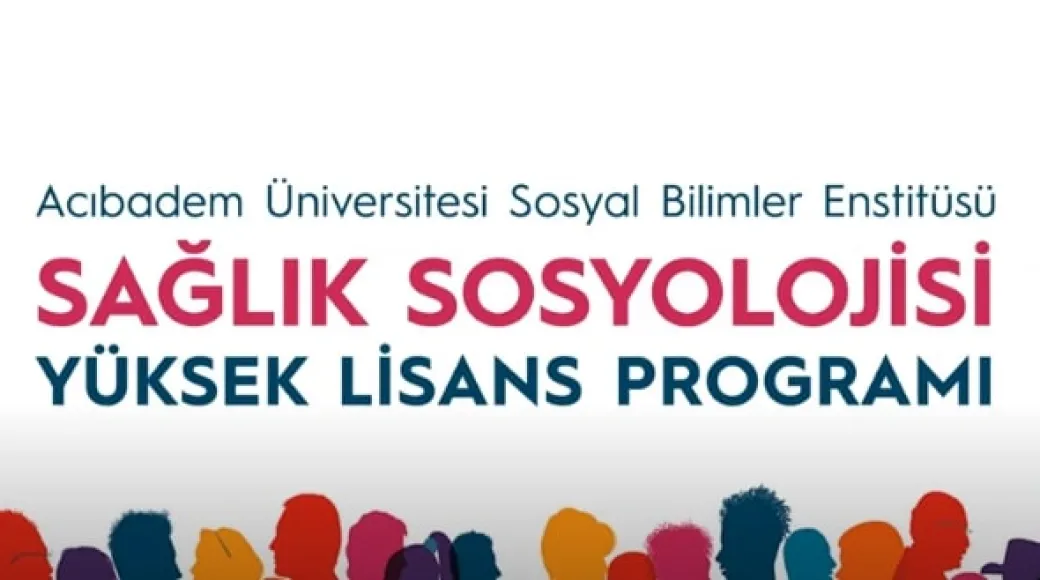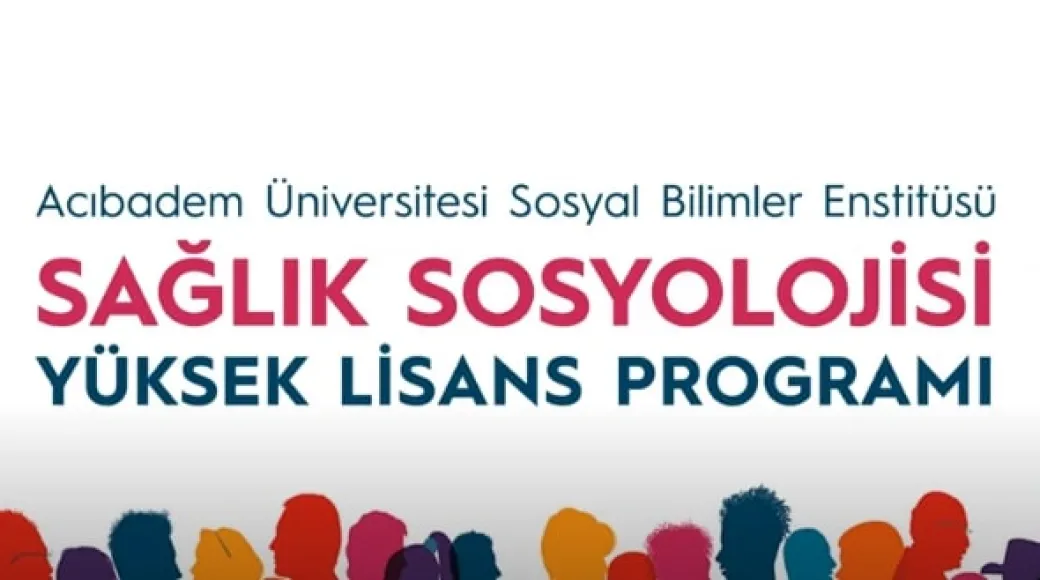The aim of the Master's Program in Medical Sociology is to enable students who have completed undergraduate education in the fields of social sciences or health sciences to specialize in the field of health sociology. Health sociology is a discipline that examines the relationships between social institutions and health and illness, the effects of medicine on other social institutions, the social, political, and cultural determinants of health, and the health-related regulations of different economic systems. Topics such as the doctor-patient relationship, which constitutes an important dimension of treatment, communication processes that influence public attitudes and behaviors towards health, hospital life, and the characteristics and needs of healthcare workers also fall within the scope of medical sociology.
Research shows that the distribution of diseases within societies and across different societies is largely influenced by cultural and socio-economic conditions. Today, extended life expectancy, increasing environmental pollution, and processes such as intensive urbanization, globalization, and migration—developing in parallel with the changing structure of the economy and employment—are leading to new health problems and needs. On the other hand, the rapid development of medical technology is also increasing the health needs defined by communities. Studying all these issues requires contributions from social scientists familiar with the field of health. Since the 1980s, health-related branches of the social sciences (including specialized subfields of sociology, psychology, anthropology, and economics) have rapidly developed and begun to take place in classical social science curricula. Master's programs aimed at specialization in these areas are offered by social science departments in universities across Europe and North America.
In line with developments worldwide, there has also been a growing emphasis on training social scientists focused on health in Turkey, and courses such as health sociology and health psychology have started to be included in undergraduate programs. It is also known that state universities like Dokuz Eylül University and Marmara University have incorporated these courses into the curricula of their medical faculties. Therefore, it is foreseeable that research and teaching in the field of health social sciences will become more widespread, creating a need for academic expertise in this area.
Students who complete the thesis-based Master’s Program in Health Sociology may continue their academic careers in this field. If they choose not to, they may pursue a doctoral program in general sociology or another specialized field.
Why Acıbadem Mehmet Ali Aydınlar University?
From its foundation, Acıbadem Mehmet Ali Aydınlar University has prioritized medical and health sciences and professions. Courses in health sociology are offered in both the preclinical curriculum of the School of Medicine and in the curricula of departments such as Nursing and Health Management. Established in the 2016–2017 academic year and having accepted its first cohort of students that year, the Department of Sociology also aims to focus on health social sciences through its elective courses and guided research, and has shaped its program accordingly.
The Master's Program in Health Sociology, developed within this department, is considered a valuable step in the development of health social sciences in Turkey. Students will receive their education at a health-focused university that offers rich resources in various health-related areas and will complete a pioneering program that is the first of its kind in Turkey, positioning them to take on leading roles and responsibilities in the field.
The aim of the Master's Program in Medical Sociology is to enable students who have completed undergraduate education in the fields of social sciences or health sciences to specialize in the field of medical sociology. Medical Sociology is a field of study that examines the relationships between social institutions and health and illness, the effects of medicine on other social institutions, the social, political, and cultural determinants of health, and the health regulations of different economic systems. Topics such as the doctor-patient relationship, which is a significant aspect of treatment, communication processes that influence public attitudes and behaviors toward health, hospital life, and the characteristics and needs of healthcare workers are also included within the scope of medical sociology.
Research shows that the distribution of diseases within and across societies is largely influenced by cultural and socio-economic conditions. Today, increasing life expectancy, rising environmental pollution, and processes such as intense urbanization, globalization, and migration—developing alongside the changing structure of the economy and employment—are giving rise to new health problems and needs. In addition, the rapid development of medical technology is continuously increasing the health needs defined by communities. Analyzing all of these requires contributions from social scientists familiar with the health field. Since the 1980s, the rapidly evolving health-related branches of the social sciences (sociology, psychology, anthropology, and economics) have started to take their place in classical social science curricula, and master's programs aimed at specialization in these fields are now being offered by the social science departments of universities in Europe and North America.
In line with global developments, social scientists with an interest in health have also begun to be trained in Turkey, and undergraduate programs have started to include courses such as medical sociology and health psychology. It is also known that medical faculties of public universities like Dokuz Eylül University and Marmara University have begun to incorporate these courses into their curricula. Therefore, it is foreseeable that research and education in the field of health social sciences will become more widespread, and there will be a growing need for the academic expertise to support this development.
The non-thesis master’s program is particularly suitable for candidates who want to specialize in sociology but do not plan an academic career. It will prepare them for practitioner roles in areas such as management, research, planning, education, and consultancy related to health.
Why Acıbadem Mehmet Ali Aydınlar University?
Acıbadem Mehmet Ali Aydınlar University is an institution that, from its founding, has prioritized medical and health sciences and professions. Medical sociology courses are offered both in the preclinical curriculum of the Faculty of Medicine and in the course programs of departments such as Nursing and Health Management. The Sociology Department, which was established in the 2016–2017 academic year and welcomed its first students that year, also aims to emphasize health social sciences through its elective courses and research projects and has structured its program accordingly.
The Master's Program in Medical Sociology, developed within this department, is considered a valuable step for the advancement of health social sciences in Turkey. Students will benefit from the rich resources of a health-focused educational institution, equipping them for practitioner roles in areas such as management, research, planning, education, and consultancy related to health. By completing this pioneering program—the first of its kind in Turkey—they will take on leading roles and responsibilities in the field.





